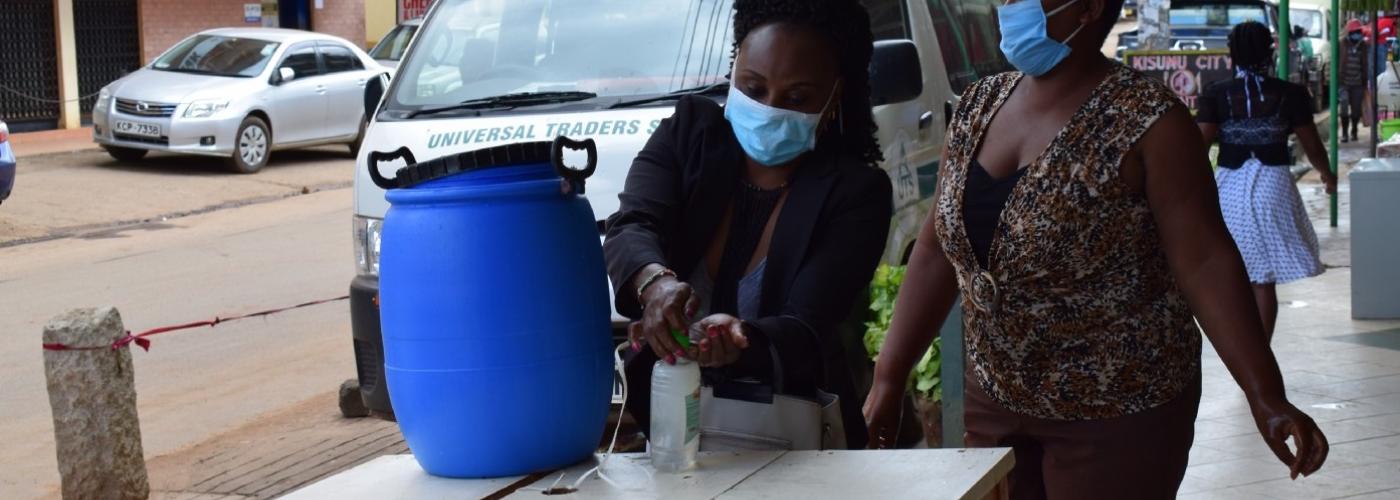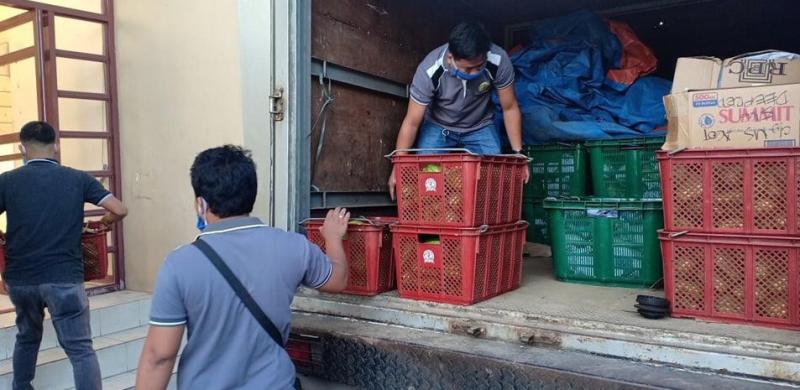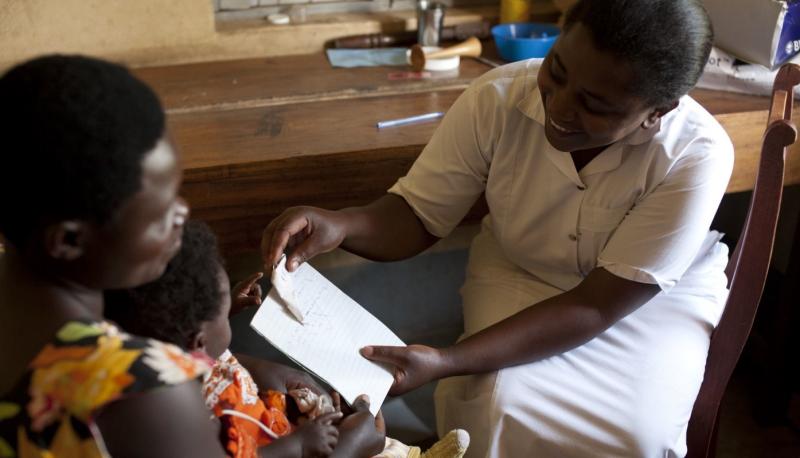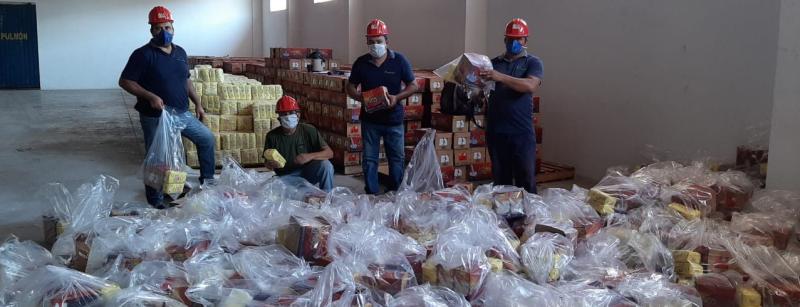Leading by Example: Four Examples That Show How Cooperatives and Credit Unions Are Helping Communities Combat COVID-19
Image

This post was originally published on Medium.
USAID invests in cooperatives and credit unions to support sustainable and locally led development outcomes. Cooperatives and credit unions are businesses that are jointly owned and democratically run by their members. A set of principles governs the way they do business, as well — with an emphasis on the social impact on members as well as the broader community. In practice, this makes cooperatives a sustainable force for development.
Globally, there are more than three million cooperatives and credit unions, representing more than one billion members. Here are four examples from USAID-supported programs that show how cooperatives and credit unions are enabling communities to adapt and address the ongoing challenges from the pandemic.
1. Supporting Physical and Financial Health in Kenya
In eastern Kenya, a savings and credit cooperative supported by the World Council of Credit Unions (WOCCU) through USAID is working diligently to ensure both the physical and economic health of its 75,000 members. To prevent the spread of the virus, the credit union has equipped its branches with personal protective equipment, set up hand-washing stations, and donated hand soap and face masks to the local communities it serves.
The credit union is also using SMS texts to assure members that their deposits are safe (preventing unnecessary “panic withdrawals”) and to amplify communication from Kenyan health authorities. Looking forward, the pandemic has presented the credit union with an opportunity to reexamine its current operations: identifying ways to boost financial stability, improving access to mobile banking to meet increased demand, and diversifying its services to reach more sectors, especially health.
2. Maintaining Food Supplies in the Philippines
In the Philippines, the pandemic has severely disrupted food distribution and access. Travel limitations mean farmer producers in the provinces are struggling to sell their products, while consumers in key cities are struggling to get enough food supplies. To address this, USAID is working with implementing partners Agriterra and the Philippine Family Farmers’ Agriculture Fisheries Forestry Cooperatives Federation (AgriCOOPh), an agricultural cooperative federation whose members include both large and small coops, to encourage “coop to coop” trade.
Image

Unloading fresh produce at the largest agricultural cooperative in the Philippines. / Agriterra
By connecting cooperatives, as well as relevant civil society organizations, USAID is supporting solutions that will ensure the supply and sale of food products continues. Plus, as Cresente Paez, CEO of AgriCOOPh highlights: “The profit margin that normally goes to the middleman, or multi-middlemen in the supply chain, will now be shared to the owners of both cooperatives in the trading transactions.”
The first week of the pilot program in April enabled 1.6 metric tons of fresh produce from a cooperative in the northern part of the country to reach the largest agriculture cooperative in the country, located just south of the country’s capital. The pilot program supported the livelihoods of the farmers, while also making fresh and affordable produce available to the 39,000 cooperative members. Since April, the program has continued to expand — connecting more cooperatives in what Agriterra dubs as “the new normal” for the Philippines.
3. Increasing Access to Information in Uganda
In Uganda, gaps in knowledge are a challenge for health care workers providing care during the pandemic. “People in our communities ask lots of questions that at times we can’t answer, because this whole situation is new to us and we have not yet gathered enough convincing information to give them back,” said Margaret, a health care worker in northern Uganda. To address this, HealthPartners, a U.S.-based health cooperative supported by USAID, launched a two-way text-messaging campaign, providing more than 1,000 members, district leaders, health care workers, youth, and other vulnerable groups with essential information.
Image

Prior to the pandemic, a nurse reviews health information with a mother and her child in Uganda. / Health
The updates, sent twice per day, contain information approved by the Ugandan Ministry of Health, with important details on symptoms, prevention measures, and what to do if someone falls ill — all in local languages.
As part of its public information campaign, the cooperative is also printing posters and hosting a radio show with health officials and local leaders to ensure approved messaging is shared widely, while also helping to debunk the myths and rumors surrounding COVID-19. As Margaret boldly says: “It will allow us to push further!”
4. Stepping Up to Support the Community in Paraguay
Through USAID implementing partner Equal Exchange, the Manduvirá sugarcane cooperative in Paraguay is supporting its members and the local community during this difficult time. At the cooperative’s annual (and this year, virtual) meeting, members voted to allocate a portion of the cooperative’s fair trade premiums to provide food supplies for its drivers, who are still delivering sugarcane to customers.
Image

Cooperative members assembling food kits to be delivered to essential staff and the local community in Paraguay. / Equal Exchange
“I think that being part of a cooperative or having a cooperative nearby is a social strength, because with solidarity as its essence, we cannot be oblivious to members’ needs,” said Alicia Florentin, a project manager at the cooperative.
Not only is the cooperative protecting and empowering its own members during this crisis, it is also taking steps to ensure the well-being of the greater community. The cooperative is pooling cash donations from their own salaries to provide food, masks, gloves, thermometers, cleaning supplies, and other essential items to households and health clinics in the area. Alicia explained: “Cooperatives are a key aspect of resilience in these types of situations, since we feel the needs of others are our own, and we can only succeed if we stay together and support each other.”
Learn more about the Cooperative Development Program and Local Works, part of the Office of Local Sustainability, online.
About the Authors
Emily Varga is the Director of the Cooperative Development Program (CDP), and Kristina Evans is a Program Analyst for the CDP. Helen Moser is a Senior Mission Support Program Analyst for the Local Works program. Hannah Bottum is a Communications Associate with the Office of Local Sustainability. USAID’s mission in the Philippines and Local Works implementing partner Agriterra, as well as CDP implementing partners Equal Exchange, HealthPartners, and World Council of Credit Unions, contributed to this post.

